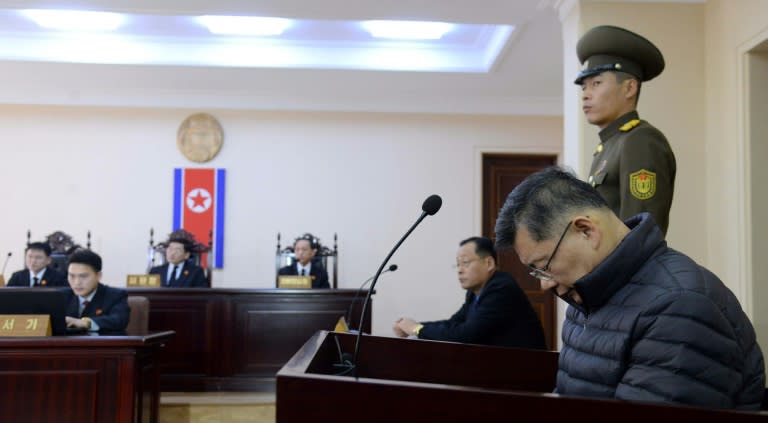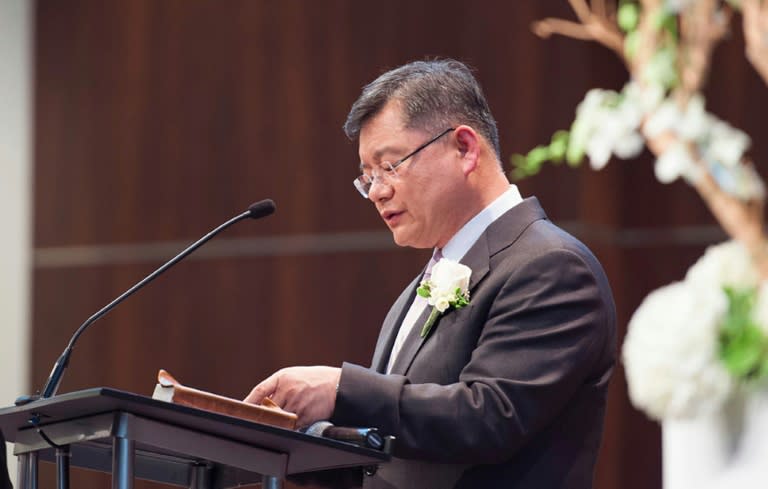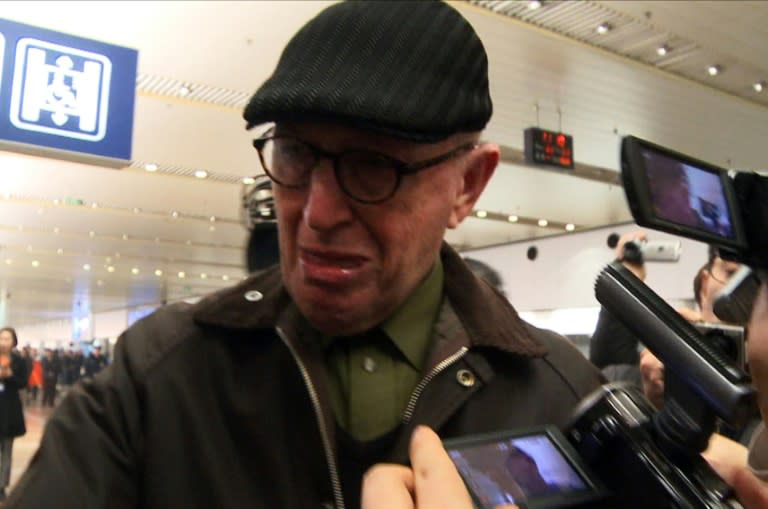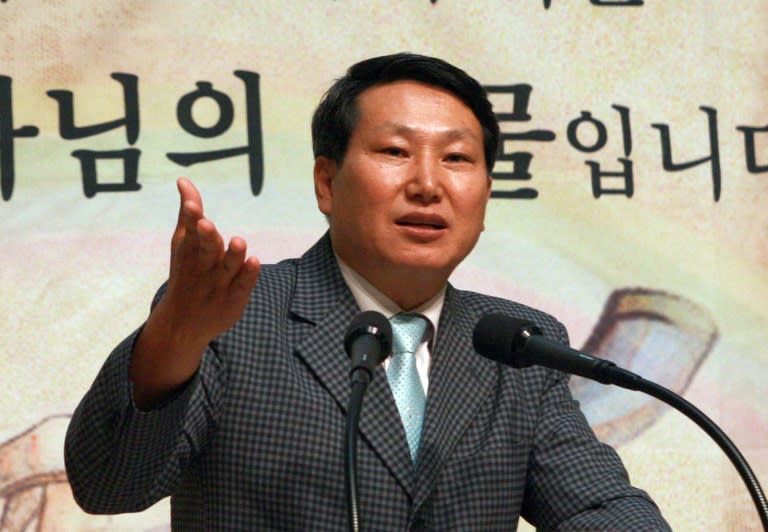N. Korea jails Canadian pastor for life with hard labour
An influential Canadian pastor was sentenced Wednesday to life in prison with hard labour by a North Korean court following his conviction on sedition charges, prompting Canada to slam the punishment as "unduly harsh". South Korean-born Hyeon Soo Lim, 60, a pastor at the Light Korean Presbyterian Church in Toronto, is the latest in a series of foreign missionaries to be arrested, deported or jailed for allegedly meddling in state affairs. "The defendant Lim admitted all the charges against him including viciously defaming our system and our supreme dignity as well as plotting to overthrow our state," the North's official KCNA news agency said. Ottawa hit out at the punishment, saying they were "dismayed at the unduly harsh sentence given to Mr Lim by a North Korean court, particularly given his age and fragile health". The statement from the foreign ministry said consular officials had been denied access to Lim, describing it as "a serious violation of the Vienna Convention on Consular Relations". Prime Minister Justine Trudeau told reporters he was "very concerned" by the sentence, adding that Canada would continue to push for access to Lim. Lim was detained by North Korean authorities in January after arriving from China. The specific actions that resulted in the sedition allegations have never been detailed. Members of the close-knit circle of ethnic Korean missionaries in the United States and Canada have called him one of the most influential Christian missionaries operating in North Korea. He had led multiple aid missions involving work with orphanage houses, nursing homes and food processing factories. Some of the projects he had worked on were linked to associates of Jang Song-Thaek -- an uncle of leader Kim Jong-Un -- who was dramatically arrested and executed for treason in December 2013. According to KCNA, the prosecutor had asked the Supreme Court to hand down a death sentence, arguing that the pastor's crimes merited "the sternest punishment". - Church 'confession' - In August the North released a video showing Lim attending a Sunday service at Pyongyang's Pongsu Church and confessing to various charges in an address to a small congregation that included a number of foreigners. "I committed the gravest crime of insulting and defaming the top dignity and the leadership of the republic," Lim said in the video. Detained foreigners are habitually required to make public and officially scripted pronouncements of their guilt in order to help secure their eventual release. "The trial demonstrated again what kind of miserable fate awaits people like Lim -- the followers of the US and South Korean regimes that ceaselessly try to annihilate our socialist system and defame the supreme dignity of our sacred republic," KCNA said. Pyongyang views foreign missionaries with deep suspicion, though it allows some to undertake humanitarian work. A number of Christian missionaries -- mostly ethnic Koreans who are US citizens -- have been arrested in the past, with some of them only allowed to return home after intervention by high-profile US political figures. Although religious freedom is enshrined in the North's constitution, it does not exist in practice and religious activities are restricted to officially recognised groups linked to the government. - Suspect foreign missionaries - In November last year Kenneth Bae -- a US citizen who, like Lim, was born in South Korea -- was released two years after being sentenced to 15 years' hard labour. Bae, who had been convicted of plotting to overthrow the North Korean regime, was released along with another American detainee as the result of a secret mission to Pyongyang by US intelligence chief James Clapper. In March last year an elderly Australian missionary, John Short, was deported after being held for 13 days. A South Korean missionary arrested in the North in October 2013, Kim Jeong-Wook, is currently serving hard labour for life for allegedly spying and operating an underground church. Lim's sentence was announced just days after high-level talks between the two Koreas aimed at improving cross-border ties broke up in mutual recrimination. It also came a week after the North came under stinging criticism for the second consecutive year in the UN Security Council over its human rights record. The council meeting was chaired by the United States, whose ambassador Samantha Power said Pyongyang's rights abuses represented "a level of horror unrivalled in the world".





